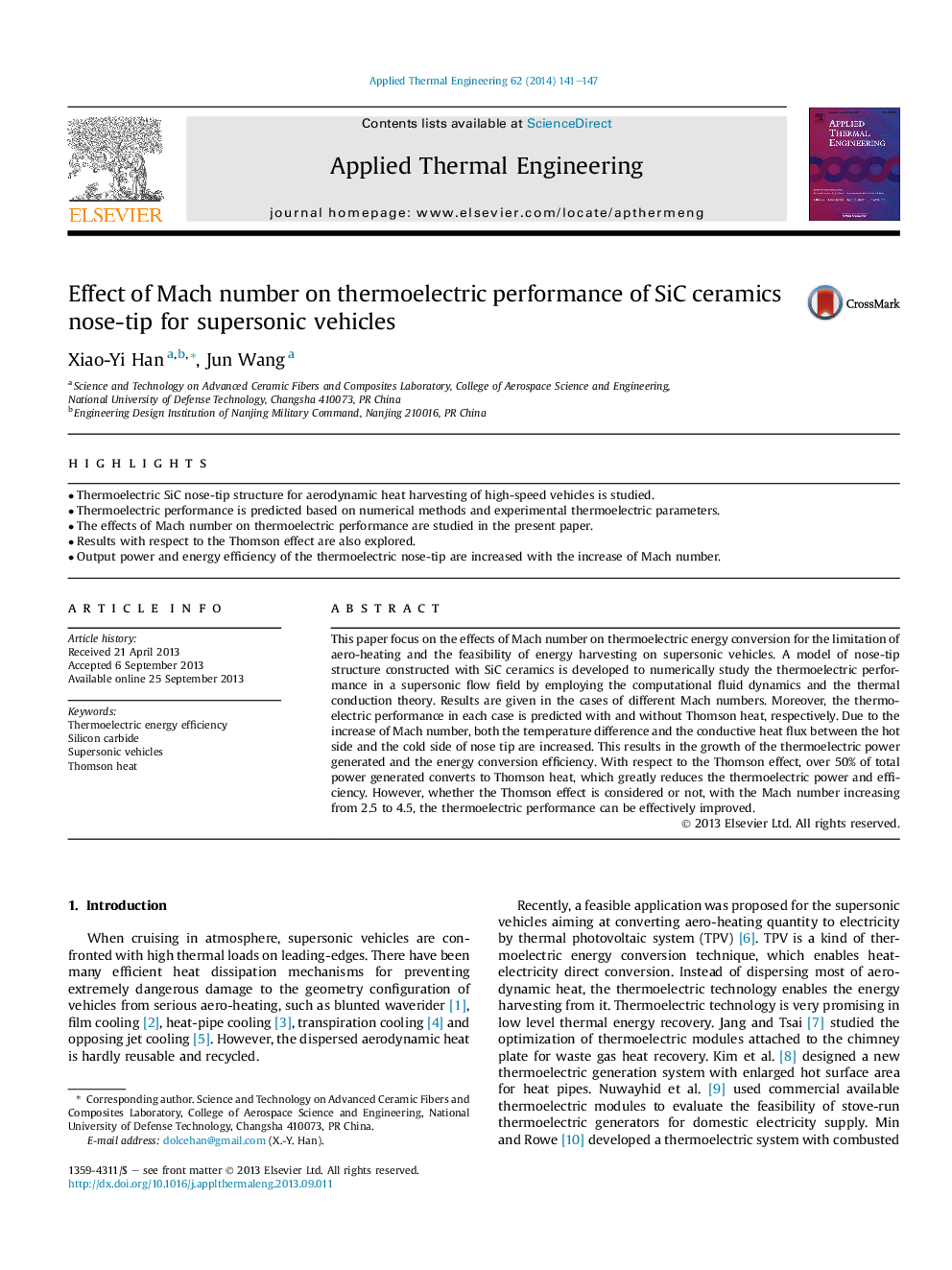| کد مقاله | کد نشریه | سال انتشار | مقاله انگلیسی | نسخه تمام متن |
|---|---|---|---|---|
| 646734 | 884569 | 2014 | 7 صفحه PDF | دانلود رایگان |

• Thermoelectric SiC nose-tip structure for aerodynamic heat harvesting of high-speed vehicles is studied.
• Thermoelectric performance is predicted based on numerical methods and experimental thermoelectric parameters.
• The effects of Mach number on thermoelectric performance are studied in the present paper.
• Results with respect to the Thomson effect are also explored.
• Output power and energy efficiency of the thermoelectric nose-tip are increased with the increase of Mach number.
This paper focus on the effects of Mach number on thermoelectric energy conversion for the limitation of aero-heating and the feasibility of energy harvesting on supersonic vehicles. A model of nose-tip structure constructed with SiC ceramics is developed to numerically study the thermoelectric performance in a supersonic flow field by employing the computational fluid dynamics and the thermal conduction theory. Results are given in the cases of different Mach numbers. Moreover, the thermoelectric performance in each case is predicted with and without Thomson heat, respectively. Due to the increase of Mach number, both the temperature difference and the conductive heat flux between the hot side and the cold side of nose tip are increased. This results in the growth of the thermoelectric power generated and the energy conversion efficiency. With respect to the Thomson effect, over 50% of total power generated converts to Thomson heat, which greatly reduces the thermoelectric power and efficiency. However, whether the Thomson effect is considered or not, with the Mach number increasing from 2.5 to 4.5, the thermoelectric performance can be effectively improved.
Journal: Applied Thermal Engineering - Volume 62, Issue 1, 10 January 2014, Pages 141–147